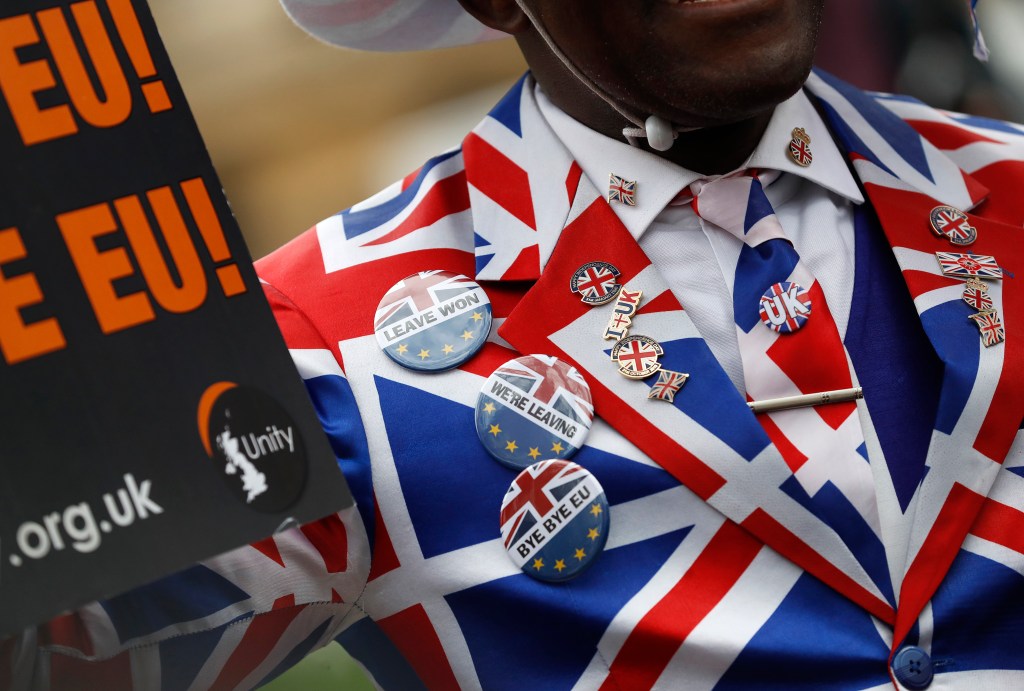Hopes for a smooth Brexit are fading, as London and Brussels clashed over reports of a 100 billion euro “divorce bill” Wednesday. Such figures have been dismissed by British lawmakers as preposterous, but the EU’s chief Brexit negotiator has warned that “accounts need to be cleared” before any exit can take place.
Michel Barnier’s remarks came at a press conference Wednesday where he published the EU’s guidelines for negotiating phase one of the U.K.’s departure, which will focus on Ireland, citizen’s rights and how much money Westminister will have to pay Brussels before it can leave the organization.
Videos by VICE
It is the final aspect of these negotiations which is likely to cause the most controversy, particularly in the U.K. where any financial settlement is being framed as a punitive measure, though Barnier was at pains to point out that this was not the case. “There is no punishment, there is no Brexit bill.” He added that the EU has never asked the U.K. for a blank cheque, but that it was a matter “of balancing the books, and accounts which need to be cleared” before Britain can leave the union.
Barnier warned: “Some have created the illusion that Brexit will have no material impact, the illusion that Brexit can be concluded quickly or painlessly — this is not the case.”
In phase one of negotiations, which Barnier called “extraordinary and difficult,” the EU will seek to define the methodology of financial settlement, rather than come up with a definitive figure. He added that failure to reach agreement on this matter could have “explosive” consequences.
On Wednesday, the Financial Times reported that the final bill presented to the U.K. could be as much as 100 billion euro, based on its own analysis of stricter new demands driven by France and Germany.
Responding to the suggestion of a €100 billion settlement, the U.K. Brexit minister David Davis told the BBC that paying such a figure would not be contemplated by the government, and threatened to walk away from the bloc without a deal if provoked. Chancellor Philip Hammond said the figure reported by the Financial Times was not one he “recognised.”
The discussion of a so-called “Brexit bill” will only serve to heighten an already tense relationship between the two sides – before formal negotiations even begin. On Tuesday, Prime Minister May vowed to be “a bloody difficult woman” during Brexit negotiations with the EU, after it emerged that extensive details of a dinner she hosted last week — which was attended by President of the European Commission Jean-Claude Juncker and Barnier — were leaked to the German media over the weekend.
One report suggested Juncker’s departing words to May were: “I’m leaving Downing Street 10 times more skeptical than I was before.” May dismissed the reports as “Brussels gossip.”
The U.K. had hoped that negotiations on a new trade deal could take place parallel to discussions about how the U.K. will exit the bloc, but these hopes have been dashed by the remaining 27 members of the EU.
May’s suggestion that she will have a pivotal role in the negotiations could be wishful thinking, as the Times reported Wednesday that she will not be invited to meetings of the heads of government of other member states, and will only be allowed to discuss the terms of Brexit with Barnier.
While on the campaign trail ahead of the June 8 election, May said she wanted people to vote for her in order to strengthen her hand when talking to “prime ministers, presidents and chancellors of Europe” about the U.K.’s departure from the EU.
As well as attempting to establish a framework to figure out how much the U.K. needs to pay, Barnier said that Ireland would be a major focus of the first part of the negotiations, and he revealed that he is set to travel there next week. He also said that the European Court of Justice will have the jurisdiction to interpret the rights of EU citizens living in the UK “well after the U.K. leaves.”




